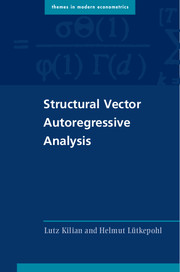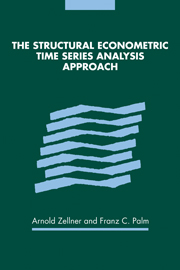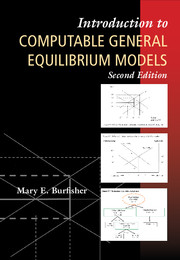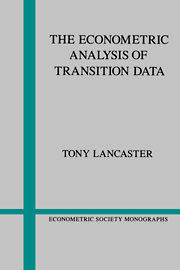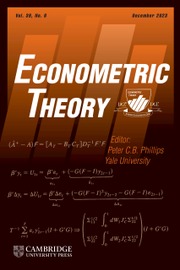Structural Vector Autoregressive Analysis
Structural vector autoregressive (VAR) models are important tools for empirical work in macroeconomics, finance, and related fields. This book not only reviews the many alternative structural VAR approaches discussed in the literature, but also highlights their pros and cons in practice. It provides guidance to empirical researchers as to the most appropriate modeling choices, methods of estimating, and evaluating structural VAR models. The book traces the evolution of the structural VAR methodology and contrasts it with other common methodologies, including dynamic stochastic general equilibrium (DSGE) models. It is intended as a bridge between the often quite technical econometric literature on structural VAR modeling and the needs of empirical researchers. The focus is not on providing the most rigorous theoretical arguments, but on enhancing the reader's understanding of the methods in question and their assumptions. Empirical examples are provided for illustration.
- Provides a comprehensive and up-to-date treatment of the topic, allowing readers to find all related methods in one source
- Bridges the gap between the technical structural vector autoregressive (VAR) literature and the needs of empirical researchers
- Shows the pros and cons of specific structural (VAR) methods, allowing empirical researchers to decide on the most appropriate methods for their analysis
Reviews & endorsements
'The book by Kilian and Lütkepohl will become the new benchmark textbook for teaching structural vector autoregressive analysis. This book thus devotes considerable space to the issue of identification, including sign restrictions, to Bayesian methods, to Factor Vector Autoregressions and to non-fundamental shocks. These are key to understanding much of recent research. The authors do an excellent job of assembling and lucidly explaining it all. This book is destined to become a classic.' Harald Uhlig, University of Chicago
'Structural vector autoregressions (SVARs) are an essential tool in empirical macroeconomics. This book provides a thorough and long-overdue digest of a literature that has been thriving for over 35 years and seen a lot of exciting developments in the past decade. The authors masterfully blend theoretical foundations, guidance for practitioners, and detailed empirical applications. This is a must-read for anyone working with SVARs.' Frank Schorfheide, University of Pennsylvania
Product details
No date availablePaperback
9781316647332
754 pages
227 × 151 × 41 mm
1.06kg
40 b/w illus.
Table of Contents
- 1. Introduction
- 2. Vector autoregressive models
- 3. Vector error correction models
- 4. Structural VAR tools
- 5. Bayesian VAR analysis
- 6. The relationship between VAR models and other macroeconometric models
- 7. A historical perspective on causal inference in macroeconometrics
- 8. Identification by short-run restrictions
- 9. Estimation subject to short-run restrictions
- 10. Identification by long-run restrictions
- 11. Estimation subject to long-run restrictions
- 12. Inference in models identified by short-run or long-run restrictions
- 13. Identification by sign restrictions
- 14. Identification by heteroskedasticity or non-gaussianity
- 15. Identification based on extraneous data
- 16. Structural VAR analysis in a data-rich environment
- 17. Nonfundamental shocks
- 18. Nonlinear structural VAR models
- 19. Practical issues related to trends, seasonality, and structural change
- References
- Index.

